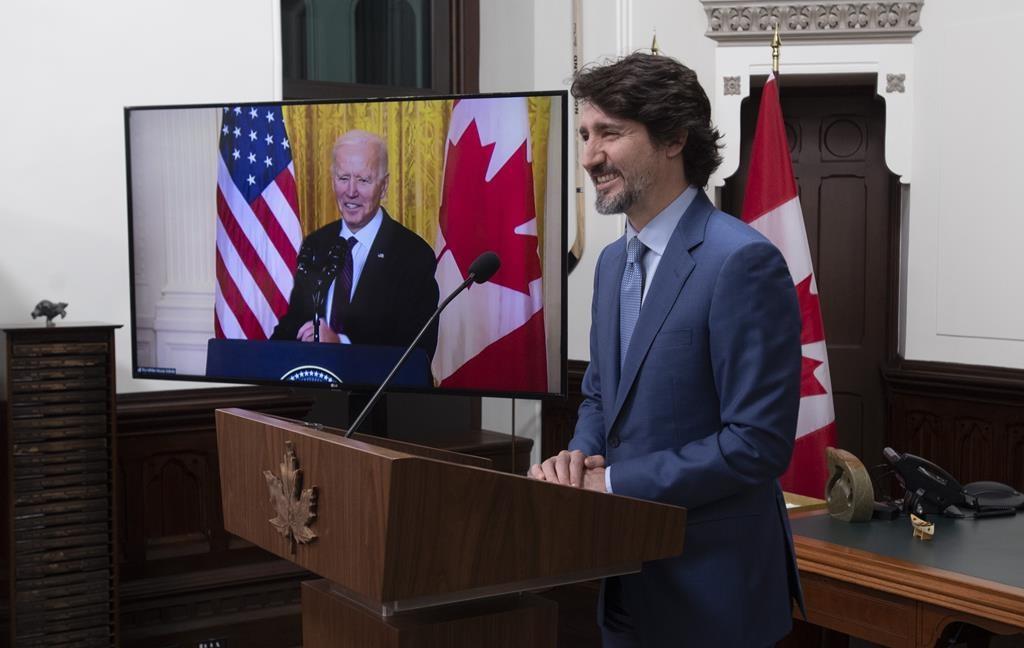Washington has confirmed it is working on a plan to lend 1.5 million doses of the Oxford-AstraZeneca COVID-19 vaccine to Canada, while the military commander in charge of the rollout here says all adults who wish could be able to get their first shot by July 1.
White House press secretary Jen Psaki said Thursday that details have not been fully worked out and that another 2.5 million doses would go to Mexico.





